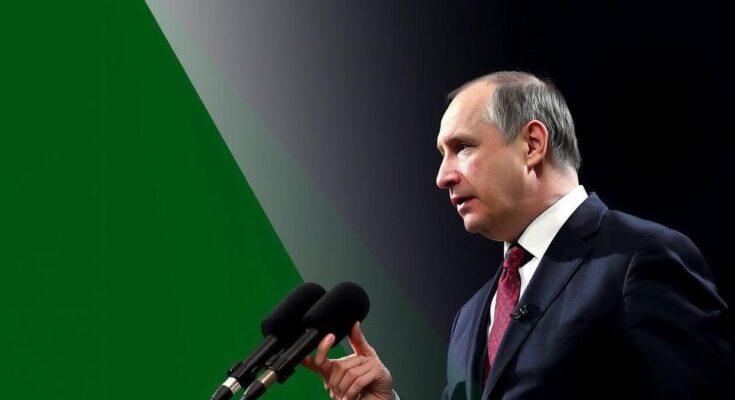Russia’s support for Assad in Syria faces challenges due to rapid rebel advances in Aleppo. Despite a history of collaboration with Iran and Hezbollah, Moscow’s recent muted response illustrates its limited options. As it grapples with conflicts in Ukraine, the necessity for close ties with Iran appears more critical than ever to stabilize Assad’s regime and counteract rebel threats.
In the tumultuous landscape of the Syrian conflict, Russia finds itself in a precarious position as it grapples with an increasingly embattled ally, President Bashar al-Assad. The hard-earned gains that were previously made in Syria now seem insubstantial in light of recent advances by anti-Assad rebel forces in Aleppo, which captured the city in under three days. This rapid progression has generated a sense of irony and ridicule among the Russian public, particularly exemplified in the popular jest that “Syrian rebels were able to accomplish what Russia couldn’t — they occupied Aleppo in less than three days.”
The apparent apathy displayed by Moscow in response to these significant developments raises concerns regarding its strategic interests in the region. Historically, Russia has relied on Iran and Hezbollah to assist in sustaining Assad’s regime, particularly when faced with strong opposition. However, the current situation presents a different challenge, as Russia’s capacity to offer substantial support appears diminished. The geopolitical realities demand greater collaboration with Iran to navigate the complex dynamics at play, as Tehran serves as a critical partner in stabilizing Assad’s rule and countering the rival factions threatening his government.
Consequently, this evolving scenario underscores the intricate interdependencies that characterize Russia-Iran relations within the Syrian theater. Although Russia is preoccupied with conflicts elsewhere, notably in Ukraine, its reliance on Iran has never been more pronounced, necessitating a concerted effort to restore stability in Syria amid rising threats to Assad’s regime.
The Syrian civil war has evolved into a complex conflict involving multiple foreign powers, including Russia and Iran. Initially, Russia intervened militarily in support of Bashar al-Assad’s government, effectively shifting the momentum in favor of the regime. However, with the resurgence of rebel forces capable of rapid territorial gains, particularly in Aleppo, Russia’s previous stronghold is now under significant stress. As the situation deteriorates further, the collaboration between Russia and Iran becomes not only strategic but imperative for sustaining Assad’s authority in the region. This partnership reflects historical ties and mutual interests that both nations hold in preventing a power vacuum that could potentially benefit their adversaries.
In conclusion, the recent rapid advances by anti-Assad rebels in Aleppo have placed the Russian Federation in an uncomfortable position concerning its vested interests in Syria. The reliance on Iranian support is becoming increasingly critical as Moscow’s options appear limited amid its preoccupations elsewhere. This situation emphasizes the importance of strategic alliances in maintaining the balance of power within the region, highlighting how intertwined and precarious these geopolitical relationships truly are.
Original Source: www.haaretz.com




